Having travelled to Uganda to report on their work first-hand, AJ Gomez says the Christian charity Compassion are breaking generational cycles of poverty and giving families a hope and a future
Our military-green Toyota Land Cruiser struggled up the sodden hillside of a remote village in Mbale, Uganda. As a thunderstorm began to undo the earth beneath us, we fought to reach the summit. There, Godwin’s house waited – a small concrete hut, home to the Compassion-supported child we were due to visit.
His father welcomed us with a speech steeped in gratitude before his family broke into a homely rendition of the African gospel staple: ‘Who has the final say’. My Premier colleagues, initially unfamiliar with the tune, quickly learned the sung response: “Jehovah has the final say!”
Godwin’s father spoke of the relief Compassion had brought in sponsoring his child and covering his school fees. With tangible pride, he shared how well Godwin was doing, particularly in Christian religious education.
As we prepared to leave, Godwin’s mother slipped into a back room and emerged with a gift. A box of bananas – an amount that may well have been their provision for the week.
Godwin prayed over the food. His mother prayed over us: “May their generosity return to them a hundredfold.”
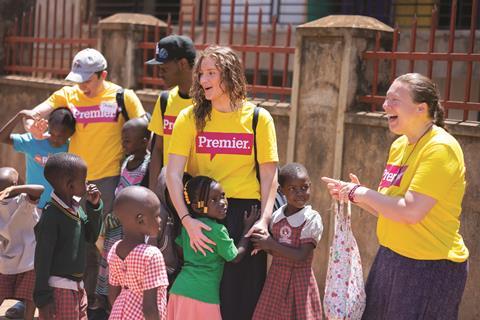
A blessing and a box of bananas
I had travelled from London to Uganda with my colleagues, James, Jessica and Maria. In the coming days, we would witness the work of Compassion in serving impoverished children in many communities like Godwin’s.
As we left, and the brakes on our Toyota did their best to stop us hurtling down the undone hillside, Jessica voiced a question: “Would you stand in front of Bill Gates or Jeff Bezos, hand them the last of your savings and then pray abundance over them?”
It was her way of processing the seemingly undue gratitude and generosity we had just received from Godwin’s family. In a country where more than 40 per cent of the population lives on less than £1.50 a day, a box of bananas isn’t spare change. It’s sacrifice.
We weren’t Gates or Bezos. But we had just been driven from the education centre Godwin walks to most days to go to school – scaling and descending hills most wouldn’t face without a harness. That alone would have justified an assumed perception of our privilege, alleviating them of any felt obligation to give us anything.
Yet they did…with an open-handed gratitude that points to a trust in something deeper than possessions.
Godwin and his family trust in something deeper because they have been exposed to something deeper. They have seen God’s love. They have felt it. Because of that, they are able to share it – generously and joyfully.
Divine love cannot lay dormant in anyone who receives it. When it’s truly invested into another person, it rewards infinite returns, overflowing and spilling from neighbour to neighbour. What Compassion is doing in Uganda is an embodiment of that stream. And that stream doesn’t stop in the village.
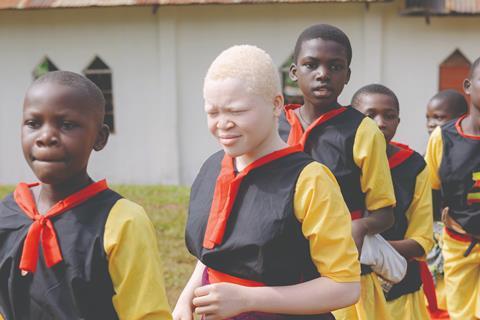
When the rescued become the rescuers
There are more than 450 church-based hubs across Uganda at which Compassion-supported children receive education, meals, medical check-ups and spiritual input. I met Jacob, 12, at one of these. At the Maizimasa Child and Youth Development Centre, Jacob is head boy, and I learned very quickly how seriously he takes that role. Acting on his own intuition, he visited another Compassion church project, took note of what they were doing well and returned to implement similar changes for the good of his peers. I couldn’t tell whether I was speaking to a schoolboy or a politician leading a constituency, such was his maturity.
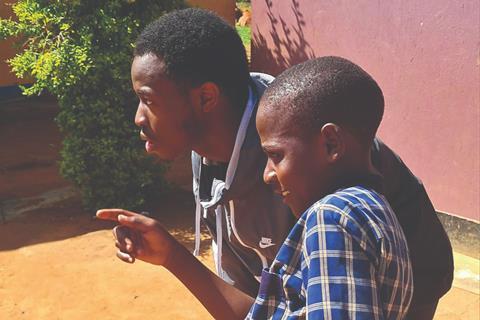
Compassion is giving these children a future, and this was evident when we visited the organisation’s national office and discovered 22 members of staff had once been Compassion-supported children themselves.
There are needs that money can do nothing to appease
Noirine is one of them. She has seven siblings and was raised by a single mother. Only Noirine and one of her brothers were officially registered with Compassion but, in truth, Compassion’s support sustained her entire family. Before she had even completed the education Compassion was funding, Noirine decided her response of gratitude would be to repay Compassion with her service.
Laughing, she shared how her initial plan was to volunteer her time and skills for two years at most: “just to show appreciation”. But a bachelor’s degree, master’s degree, twelve years and six job titles later, she’s still there – now the senior manager of product support at Compassion International.
More than once, a young Noirine told the staff at her project just how dire the situation was at home and they would provide food for the entire family. Through tears, she recalled how the first mattress Compassion provided her was shared with her siblings. Those same siblings she once divided her project-issued soap and Vaseline among now hold diplomas and degrees – their tuition covered by Noirine.
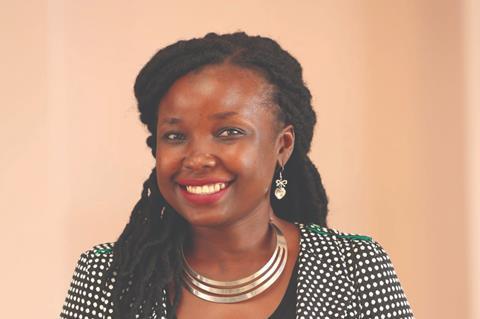
It’s the best type of irony: the organisation that empowered Noirine to seek a future free of the constraints of poverty became the very future it equipped her to pursue.
Having built her life on the foundation that Compassion laid, Noirine now extends the provision she received to the thousands of kids she serves in her work. In doing so, she’s given her siblings the gift of education – a tangible hope and a means of providing for their own future families.
Noirine’s story is a picture of God’s love and its infinite returns – one example of how Compassion is mobilising God’s love to break cycles of generational poverty and replace them with cycles of generational promise.
The village that drank urine
Poverty is like a prison cell. That’s how Compassion graduate James describes it. You spend your first day peering through the bars in the hope that there’s someone coming to rescue you. When no one comes, that anxiety dulls and resignation takes its place: Perhaps, this is all there will ever be.
I was told of a village that resorted to drinking cow’s urine to hydrate themselves. They were cattle keepers in western Uganda, without access to wells or taps that could provide safe drinking water. So, they did what made sense to them in the madness of their scarcity – in that prison cell where you have no choice. The community became known simply as: “the people who drink urine”.
James’ metaphor of a prison articulates the mindset in which the unbearable begins to feel like the conditions that were set for you. It doesn’t make the bewildering story of a community drinking urine any less heartbreaking, nor should it. But it does make it understandable.
Divine love cannot lay dormant. When it’s truly invested into another person, it rewards infinite returns
Thus, the onus falls on someone to ensure the hope of rescue does not go unfulfilled. For that village, it was James. When Compassion partnered with the church in that area, access to clean water was identified as an immediate need. So, James oversaw a project that implemented a motorised borehole, and the church leaders renamed the village: “the people who drink water”.
James once needed a rescuer too – and Compassion was that for him.
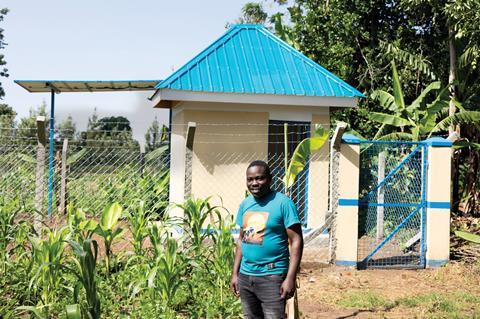
From the age of four, he would walk three kilometres to and from a spring, lugging a five-litre jerry can filled with contaminated water on the way back. At the time, he was unaware the water was the cause of the illnesses that were afflicting him and his family. It wasn’t until he started attending a Compassion project that he was taught about preventable diseases.
Through his local church, James was enrolled on the sponsorship programme and given a roadmap called My Plan for Tomorrow. On it, he scribbled: “engineer”. A staff member took notice and became, in his words, his “accountability partner – tough and loving, sweet and sour”. Grinning, he said: “You never wanted to land on the southern side of her emotions. So, I worked hard.”
School fees were paid. Food was provided. The burden of survival was lifted and James was given the freedom every child deserves to pursue their future. He graduated as an engineer and joined Compassion, specialising in water and infrastructure. For the past seven years, he’s poured that expertise into the land that once failed to nourish him.
Seventy-three clean water interventions later, James has helped provide safe water to more than 500,000 people across Uganda.
The butterfly effect can be a wonderful thing. One decision – to sponsor a child – triggered a chain of events that culminated in many people getting access to clean water. A seed was planted, and God in his faithfulness used that seed to change lives.
Now, James impatiently awaits the day he can take his sponsor by the hand and show them every village, every water pump, every child now free from the same contaminated water that once plagued him – because of a choice they made.
Half a million people have access to clean water because one child’s potential was unlocked. James’ story is a powerful example of what happens when the gifts of a young person are relieved of the weight of poverty, and nurtured instead.
What money can’t buy
James’ story points to another truth in these communities: there are needs that money can do nothing to appease.
Money can’t tell you that you deserve more. It can’t console the woman who watched her husband drown after heavy rain collapsed their home in the slums of Kampala. It can do nothing for a child like Selinah, who has albinism. Her mother, who also had the skin condition, endured intense persecution from her local community and eventually ran away, abandoning Selinah and her father.
These stories reflect the pain, damaging beliefs and deeply ingrained mindsets present in these communities; the effects of poverty that aren’t material. And perhaps addressing them is the most significant part of what Compassion does.
One of the classes that the charity runs is on ‘community sensitivity’. This teaches that albinism is not a curse but a simple skin condition. And because of this, Selinah has found the belonging and love that her mother couldn’t, embraced by neighbours who don’t see her as different.
Above all, Compassion introduces children and families to a love that endures through both suffering and success – a love that refuses to let circumstances define who they are. The fruits of this love are evident in every Compassion graduate who spoke of the pivotal role these projects played in leading them to Jesus. The roots are visible in the infant faith of the children currently at the projects, blossoming in the way they talk about God and their relationship with him. When Selinah was asked who God is to her, she simply said: “He created me, and he loves me.”
That is the core of what I experienced during my time with Compassion: God’s love and its radical power. May we too be partakers in the stream of God’s love – and above all, be the source from which the stream flows.
To sponsor a child and change a life, visit compassionuk.org/premier












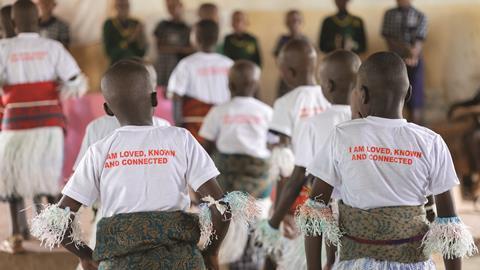

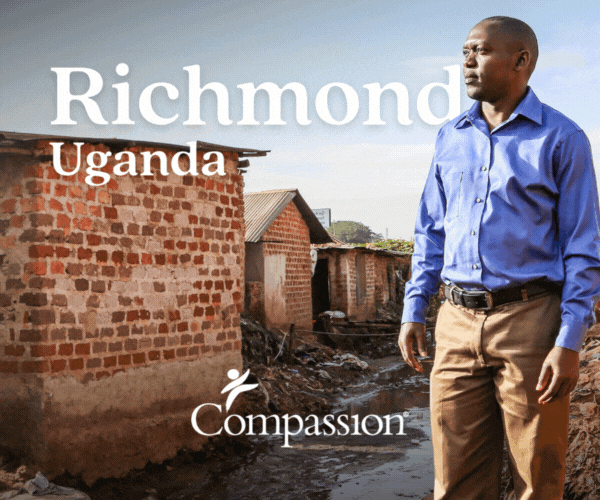
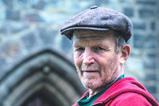























No comments yet